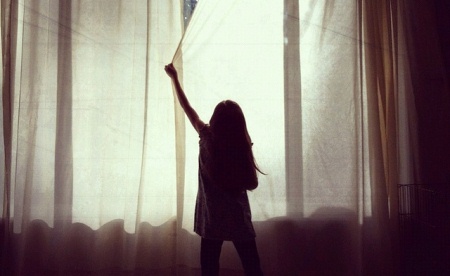0203 397 8891
Open today: 9:00am - 6:00pm

by Matthew Powell
A Body Aware Specialist
Sleep. The single best thing ever. For those of us who can do it, anytime and anywhere, we are the lords of our own universe; for those of you who struggle to find sleep however, there may be nothing more deflating, irritating, stress inducing and health destroying.
Techniques to find sleep are tenfold and would, alas, need me to triple my 500-600 word quota to run through sufficiently; but the body, everyone’s body, is programmed to accelerate and decelerate during a 24 hour period so let’s explore what the stimulus and relaxant is, and if we can understand it, how we can harness both for the better?
For tens of thousands of years, us humans have used sunrise and sunset to regulate hormone secretion in the body, specifically the “Wake up dude, time to hunt / get firewood” hormone - cortisol, and the “Chill Winston, rest up now, you’ve had a successful day of staying alive, good work” hormone - melatonin. Before coffee, before hot milk, it was sunlight that regulated us.
If we take the daylight of an equatorial country (for ease of explanation), your day should be as follows:
6am the sun rises. Cortisol is released into the body from the adrenal gland to fire you into the day and, by 8am your levels of this “stress” hormone are at their peak. By 9am they are already on the wane, but melatonin levels are uniformly low all morning.
By midday your cortisol level is half of what it was at 8am, half of the day’s sunlight has passed. Melatonin is still chillin’.
It’s 5pm, one hour before sundown, the sky is changing colour as darkness approaches, rays of red sunlight cascade across the horizon. Cortisol should now be turning in for the night, and as it does it passes the baton on.

6pm. Sundown. Cortisol is tucked in, the only light comes from the flames of the fire outside your cave. Melatonin, like Dracula, is up, about, and having it, undoing all stimulus, slowing the heart rate, the breathing, and relaxing the mind. The body is winding down.
10pm. Melatonin is at the start of its 4 hour peak, and the body is entering its physical repair stage. Between 10pm and 2am the body is trained to focus on repairing all damage to the muscles, bones, tendons, ligaments, skin, hair etc etc. Sleep at this time is very important and usually is at its deepest to facilitate repair. If you exercise a fair amount and fairly intensely, this part of the evening is hugely important to allow you to recover and recharge for the following day / session.
From 2am until sunrise melatonin begins its return to dormancy and the focus moves from body to brain. It is time for psychological repair. Good, unbroken sleep at this point will help reduce stress as the brain processes, dreams, restores what’s needed and removes what’s not. Often, when you wake up feeling, well, just better, you have slept well during this time.

So that’s how it should be. However...
This is of course not how we now live. For one, if you live in the UK your hormonal response to winter is vastly different to that in the summer due to the amount of sunlight and darkness we have (imagine how the Scandinavians feel!) and SAD is very much a result of this. Then there’s our huge strides in technology. If you’re reading this at 10pm for example, if the TV is on in the background, the coffee you had at 3pm and the tea you had when you got in from work are still very much in the system, and if the lights are on, then your hormones will be all over the shop. Melatonin is there, ready to do its thing, but cortisol isn’t bottoming out as it should be.
So now we know all of this, how can we harness it for good and use it all to find sleep quickly and with longevity?
First up, once food is cooked, dim the lights a little (call it romantic, even if you’re on your own) and keep the lights dimmed as you wash up / load the dishwasher and relax.
Go to bed as early as you can. If you have Sky Plus or DVR then record what’s good and retire.

Get an eye mask, shut the curtains, make sure the TV is off, and, if you need to have sound, make it unemotional in content and that it has a cut-off point so that the sound is finished within 30-45 mins. By making your bedroom into a cave, you can slowly start to sleep and regulate the awake / sleep hormones like the caveman our bodies still believe us to be.
Lastly, try diaphragm breathing. Lie on your back with both palms on your stomach. Breath slowly, and deeply, watching your hands rise as the stomach does. Try and make sure that the chest only rises at the end of the breath. This will not only regulate your breathing to how it should be but also give you a mental focus.
If you struggle to sleep, forget EVERYTHING else you need to do for the next 3 weeks and focus, solely on relearning how to find, and keep sleep.
Follow me @mattypowell or “LIKE” the Quantum Physiques Facebook page.
Join our mailing list to receive the latest news, offers & £50 off your first holiday.